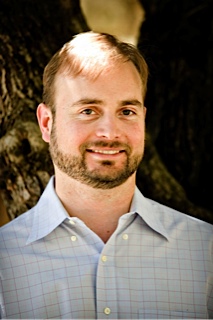
Things I cite
This page is a link to studies, references, or websites that I frequently mention. It may eventually become or be attached to a blog. For now, here goes.
Scientific Studies
• The dead salmon study: initial poster, publication, and coverage of it.
Barnett & colleagues conducted a dummy study to demonstrate the dangers of overly optimistic assumptions in neuroimaging, and to make a point about why at least a minority of the studies currently being published shouldn’t be. They ran a set of standard social cognition studies on a dead salmon lying in an fMRI. Without the appropriate statistical correction, they found several statistically significant correlations in the salmon’s brain. No one thinks that the ghost of a salmon was participating in the empathy study. Rather, studies with massively multiple comparisons and without appropriate corrections are likely to find false positives. The study received the IgNobel award in 2012.
• Geoffrey Pullum on the Great Eskimo Vocabulary Hoax. The Inuit language does not have a zillion words for ‘snow’, and the relationship among vocabulary, grammar, and cognition is complex, pace Whorf-Sapir. Linguist Geoffrey Pullum traces the origin of the commonly misquoted chesnut about how many words the Eskimo/Inuit languages have for snow, some of the linguistic difficulties (such as figuring out how to count “words” in an agglutinative language), and generally debunks it.
• The Economist. Get informed.
• Nate Silver’s 538.com. Doing science to political forecasting.
Debunking Pseudoscience & Quackery
• Homeopathy is a pseudoscience that was developed in Germany in the late 18th century. It works on the prinicples of similarity—the idea that a toxin that produces a given effect, such as fever, will cure the symptom if given in small amounts. Another homeopathic principle is the notion that dilution and shaking will magically increase the power of a substance to cure. This is both illogical (a friend jokes that he uses the most powerful homeopathic remedies—he never even goes near them)—and has failed every time it’s been put to any sort of monitored test. Some people argue that homeopathy is at worst harmless; however, many people have died or experienced greatly increased severity of illness when they have delayed seeking medical assessment and treatment by using homeopathic remedies or seeking homeopathic treatment.
- What’s the harm: a list of problems and deaths caused by homeopathic treatments.
- Homeopathy: there’s nothing in it.
- The ethical harm of homeopathy
• Vaccine “controversy”
- Jenny McCarthy Body Count: tracking the illnesses, disability, and death caused by vaccine denialists. Also remind yourself what kinds of illnesses we used to get before widespread vaccination, and how serious they are.
• Evolution is real and follows a broadly Darwinian model. Check out the National Center for Science Education. Also Jerry Coyne’s book, Why Evolution is True, and Neil Shubin’s Your Inner Fish: A Journey into the 3.5-Billion-Year History of the Human Body. iTunes U Lecture Series
• Identity: A series of prominent scholars in various fields lectured at Cambridge in 2007 on aspects of identity. Legal, mathematical, meaning, and immunology are particularly interesting presentations.
• Introduction to New Testament History & Literature, by Dale Martin from Princeton University. Great overview of the books of the New Testament and their social context from a critical-historical perspective.
• The Tolkien Professor: Corey Olsen’s podcast series and website on the works of J. R. R. Tolkien and related medieval literature. His 2010 course from Washington College, VA, is excellent: English 494: Tolkien.
Outstanding Podcasts
• A Prairie Home Companion by Garrison Keillor.
• Dan Savage’s Savage Love blog and podcast, hosted at Seattle’s The Stranger newspaper.
• The Splendid Table: Lynne Rossetto Kasper’s radio program and podcast on cooking, restaurants, food trends, and culinary science & history. Incidentally, her first book is an excellent introduction to Italian regional cooking: The Splendid Table: Recipes from Emilia-Romagna